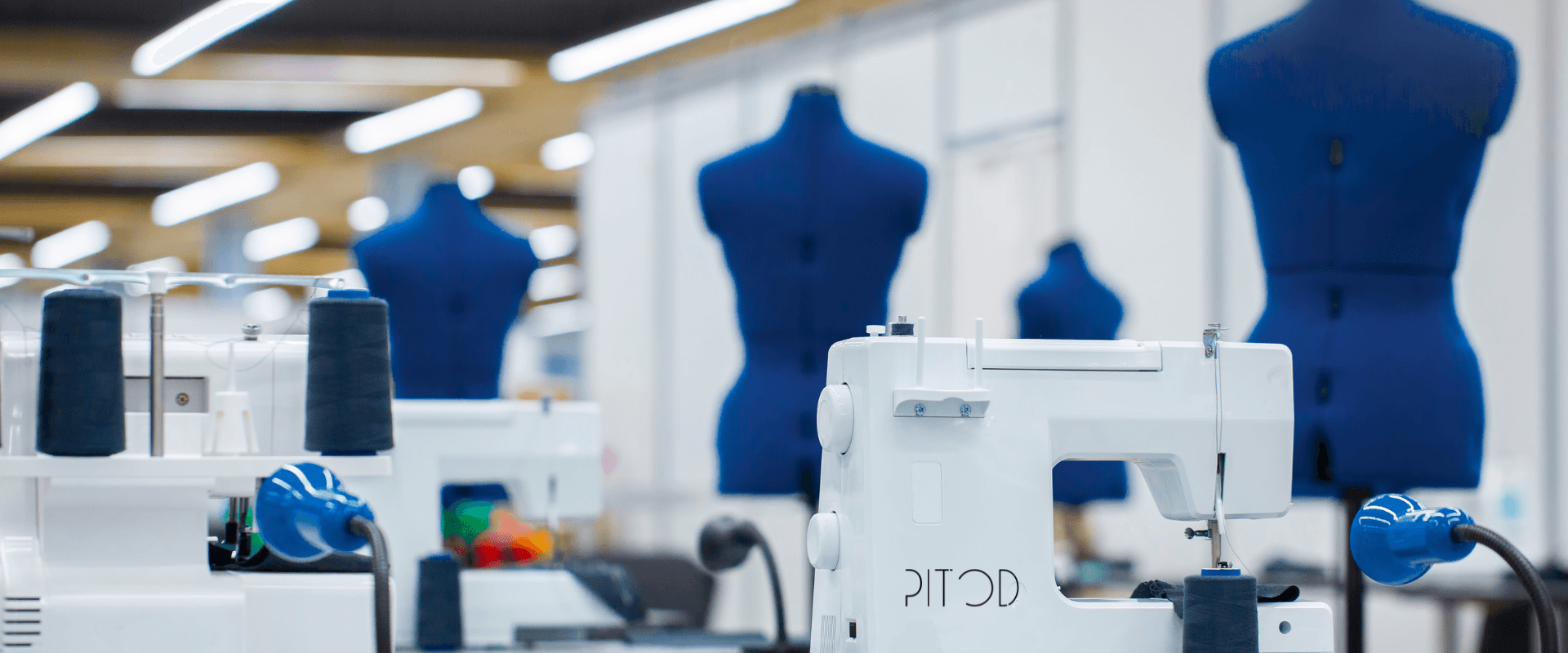
Wie Pitod strukturelle Probleme in der Modebranche angeht
Die Modebranche ist seit langem ein Symbol für Schönheit, Kreativität und Innovation, doch unter ihrer glänzenden Oberfläche verbergen sich tief verwurzelte strukturelle Probleme. Von ausbeuterischen Arbeitspraktiken und Umweltzerstörung bis hin zu einer Abhängigkeit von Fast Fashion, die übermäßige Verschwendung fördert, steht die Branche seit langem in der Kritik, Systeme aufrechtzuerhalten, die Menschen und dem Planeten schaden. Bei Pitod konzentrieren wir uns nicht nur darauf, hochwertige, nachhaltige Mode zu schaffen, sondern wir haben uns auch dazu verpflichtet, genau die Systeme herauszufordern und zu stören, die diese Probleme so lange bestehen lassen haben.
Das Fast-Fashion-Problem angehen
Fast Fashion ist wohl einer der größten Schuldigen an den Umwelt- und Sozialkrisen der Modebranche. Indem sie in halsbrecherischer Geschwindigkeit billige Massenkleidung produzieren, stellen Fast-Fashion-Marken Quantität vor Qualität, was zu übermäßigem Abfall und schlechten Arbeitsbedingungen führt. Bei Pitod stellen wir uns dieser schädlichen Praxis entgegen, indem wir die Prinzipien der Slow Fashion übernehmen. Unsere Produkte werden für jede Bestellung sorgfältig unter Verwendung ethischer und nachhaltiger Methoden hergestellt, und wir legen Wert auf Haltbarkeit und Langlebigkeit gegenüber saisonalen Trends. Dieser Ansatz ermutigt die Verbraucher, weniger zu kaufen, aber in langlebige Stücke zu investieren, was einen bewussten Konsum fördert und Abfall reduziert.
Förderung ethischer Arbeitspraktiken
Ein weiteres strukturelles Problem in der Modebranche ist die Ausbeutung der Arbeiter, insbesondere in Entwicklungsländern, in denen die Arbeitsgesetze lax und die Löhne erschreckend niedrig sind. Die globale Lieferkette wird seit langem von einem „Wettlauf nach unten“ beherrscht, bei dem Marken die Produktion an die billigsten Hersteller auslagern, oft auf Kosten der Rechte und der Sicherheit der Arbeiter. Pitod arbeitet aktiv daran, dieses Bild zu ändern, indem es ethische Beschaffung priorisiert und sicherstellt, dass jeder Arbeiter, der an der Herstellung unserer Produkte beteiligt ist, fair behandelt und mit einem existenzsichernden Lohn bezahlt wird. Wir arbeiten mit Herstellern zusammen, die sich für sichere Arbeitsbedingungen einsetzen und Transparenz über ihre Praktiken bieten.
Förderung von Vielfalt und Inklusivität
Abgesehen von Umwelt- und Arbeitsproblemen war die Modebranche in ihrer Darstellung von Schönheitsidealen historisch ausgrenzend. Jahrzehntelang dominierten enge Schönheitsideale – basierend auf bestimmten Körpertypen, Rassen und Geschlechtsausdrücken – die Laufstege und Werbekampagnen. Dieser ausgrenzende Ansatz hat zu einem Mangel an Vielfalt sowohl vor als auch hinter den Kulissen beigetragen. Pitod stellt sich diesen systemischen Problemen entgegen, indem wir uns für Vielfalt und Inklusivität in allen Aspekten unseres Geschäfts einsetzen. Unsere Designs sind bewusst geschlechtslos und für Menschen aller Körpertypen zugänglich. Darüber hinaus sind wir bestrebt, in unserem Marketing ein breiteres Spektrum der Schönheit darzustellen und mit Models, Designern und Schöpfern mit unterschiedlichem Hintergrund zusammenzuarbeiten.
Reduzierung der Umweltbelastung durch nachhaltige Materialien
Die Umweltauswirkungen der Modebranche sind erschütternd. Die Textilproduktion ist für einen erheblichen Anteil der weltweiten Kohlenstoffemissionen, des Wasserverbrauchs und der Umweltverschmutzung verantwortlich. Von der Verwendung giftiger Chemikalien bis hin zur wasserintensiven Baumwollproduktion und nicht biologisch abbaubaren synthetischen Stoffen ist die Abhängigkeit der Branche von nicht nachhaltigen Materialien ein großes strukturelles Problem. Pitod hat sich verpflichtet, von schädlichen synthetischen Stoffen wie Polyester abzurücken und organische, recycelte und umweltfreundliche Materialien zu verwenden. Auf diese Weise reduzieren wir nicht nur unseren CO2-Fußabdruck, sondern fördern auch eine Kreislaufwirtschaft, in der Materialien wiederverwendet und wiederverwertet werden können, anstatt auf Mülldeponien zu landen.
Herausforderung für die traditionelle Lieferkette
Traditionelle Lieferketten in der Modebranche sind komplex, undurchsichtig und umfassen oft zahlreiche Zwischenhändler. Dies erschwert es Marken und Verbrauchern, die Herkunft der Materialien nachzuverfolgen oder ethische Praktiken sicherzustellen. Bei Pitod bekämpfen wir diesen Mangel an Transparenz, indem wir direkte Beziehungen zu unseren Lieferanten pflegen und eine kurze, nachvollziehbare Lieferkette aufrechterhalten. Dies ermöglicht uns eine bessere Kontrolle über die Beschaffungs- und Produktionsprozesse und stellt sicher, dass jeder Schritt mit unseren Werten der Nachhaltigkeit und Fairness übereinstimmt.
Für einen systemischen Wandel in der Branche eintreten
Es reicht nicht aus, Änderungen innerhalb unserer eigenen Marke vorzunehmen; wir glauben daran, dass wir uns für systemische Veränderungen in der gesamten Branche einsetzen müssen. Pitod beteiligt sich aktiv an Initiativen, die sich für strengere Umwelt- und Arbeitsvorschriften in der Mode einsetzen. Durch die Zusammenarbeit mit anderen nachhaltigen Marken, gemeinnützigen Organisationen und politischen Entscheidungsträgern wollen wir ein gerechteres und gleichberechtigteres Modesystem schaffen. Ob durch das Eintreten für bessere Gesetze zu Arbeitnehmerrechten oder die Unterstützung von Initiativen zur Reduzierung von Textilabfällen – wir glauben, dass kollektives Handeln der Schlüssel zur Abschaffung schädlicher Systeme ist.
Die Zukunft der Mode
Unsere Mission bei Pitod ist es, Teil der Lösung für die strukturellen Probleme zu sein, die die Modebranche plagen. Wir sind uns bewusst, dass diese Probleme tief verwurzelt sind und dass es keine schnelle Lösung gibt, aber wir sind entschlossen, sie durch unsere nachhaltigen Praktiken, unsere ethische Beschaffung und unser Eintreten für systemische Veränderungen direkt anzugehen. Indem wir uns selbst zur Verantwortung ziehen und auf branchenweite Reformen drängen, glauben wir, dass eine nachhaltigere, integrativere und gerechtere Modebranche nicht nur möglich, sondern für die Zukunft unseres Planeten unerlässlich ist.



Hinterlasse einen Kommentar
Diese Website ist durch hCaptcha geschützt und es gelten die allgemeinen Geschäftsbedingungen und Datenschutzbestimmungen von hCaptcha.